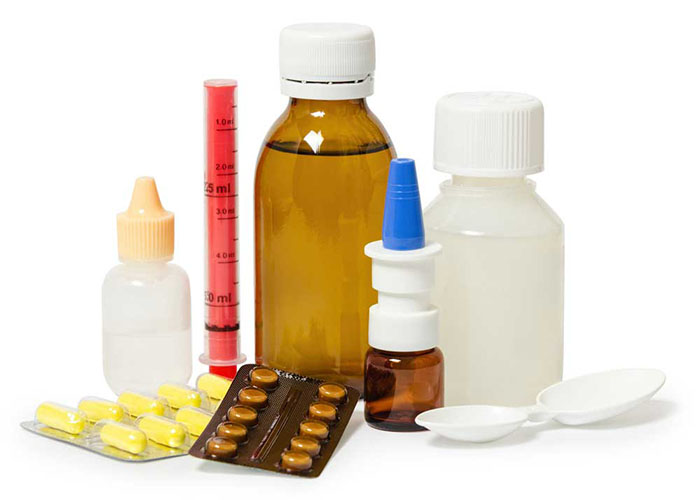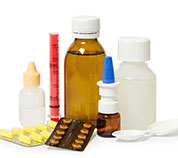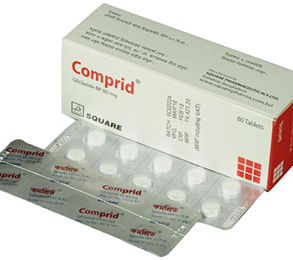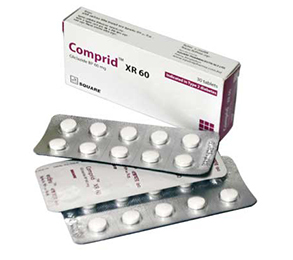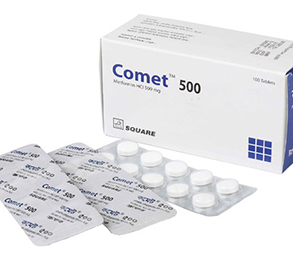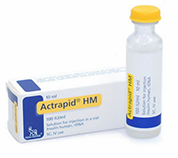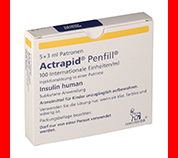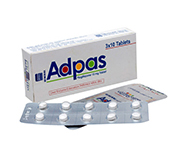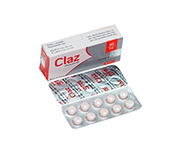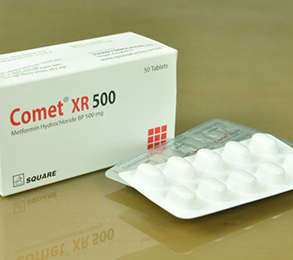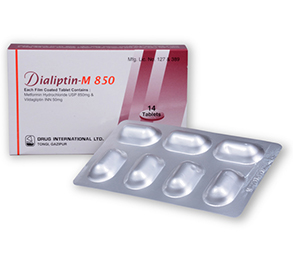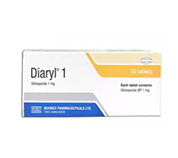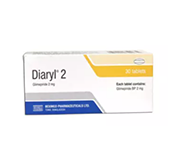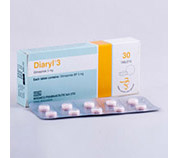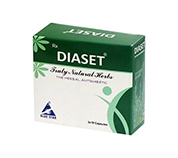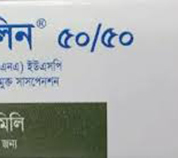Emjard M 5mg+500mg 1 Pc
Alternative products
Empagliflozin + Metformin Hydrochloride
Indications
This is indicated as an adjunct to diet and exercise to improve glycemic control in adults with type 2 diabetes mellitus when treatment with both Empagliflozin and Metformin Hydrochloride is appropriate. Empagliflozin is indicated to reduce the risk of cardiovascular death in adults with type 2 diabetes mellitus and established cardiovascular disease.
Pharmacology
Empagliflozin is an inhibitor of Sodium-Glucose Co-Transporter 2 (SGLT2). SGLT2 is the predominant transporter, responsible for reabsorption of glucose from the kidney back into the circulation. By inhibiting SGLT2, Empagliflozin reduces renal reabsorption of filtered glucose and lowers the renal threshold for glucose and thereby increases urinary glucose excretion.
Metformin Hydrochloride is a biguanide type oral antihyperglycemic drug, used in the management of type 2 diabetes. It lowers both basal and postprandial plasma glucose. It does not produce hypoglycemia. Metformin Hydrochloride decreases hepatic glucose production, decreases intestinal absorption of glucose and improves insulin sensitivity by an increase in peripheral glucose uptake and utilization.
Dosage & Administration
The dosage should be individualized based on effectiveness and tolerability. Take this combination twice daily with meals. Dose escalation should be gradual to reduce the gastrointestinal side effects due to Metformin Hydrochloride. Maximum recommended daily dose of Metformin Hydrochloride is 2000 mg and Empagliflozin is 25 mg.
Recommended individualized starting dose:
- In patients on Metformin Hydrochloride, switch to this combination containing Empagliflozin 5 mg with a similar total daily dose of Metformin Hydrochloride.
- In patients on Empagliflozin, switch to this combination containing Metformin Hydrochloride 500 mg with a similar total daily dose of Empagliflozin.
- In patients already treated with Empagliflozin and Metformin Hydrochloride separately switch to this combination containing the same total daily doses of each component.
- In patients with volume depletion not previously treated with Empagliflozin, correct this condition before initiating this combination.
Renal impaired patient: Assess renal function before initiating this combination. In patients with an eGFR below 45 mL/min/1.73 m2 is contraindicated.
* চিকিৎসকের পরামর্শ মোতাবেক ঔষধ সেবন করুন'
Interaction
Carbonic Anhydrase inhibitors may increase risk of lactic acidosis. Consider more frequent monitoring. Drugs that reduce Metformin Hydrochloride clearance (such as Ranolazine, Vandetanib, Dolutegravir, and Cimetidine) may increase the accumulation of Metformin Hydrochloride. Consider the benefits and risks of concomitant use. Alcohol can potentiate the effect of Metformin Hydrochloride on lactate metabolism. Warn patients against excessive alcohol intake.
Contraindications
This combination is contraindicated in patients with moderate to severe renal impairment and End Stage Renal Disease (ESRD). It is also contraindicated in patients with metabolic acidosis, including diabetic ketoacidosis and patients with history of serious hypersensitivity reaction to Empagliflozin, Metformin Hydrochloride or any of the excipients in this combination.
Side Effects
Most common adverse reactions associated with Empagliflozin (5% or greater incidence) are urinary tract infection and female genital mycotic infections. Most common adverse reactions associated with Metformin Hydrochloride (>5%) are diarrhea, nausea/vomiting, flatulence, abdominal discomfort, indigestion, asthenia, and headache.
Pregnancy & Lactation
Advise females of the potential risk to a fetus especially during the second and third trimesters. This is not recommended when breastfeeding.
Precautions & Warnings
Lactic Acidosis: Postmarketing cases of Metformin Hydrochloride-associated lactic acidosis. If lactic acidosis is suspected, general supportive measures should be instituted promptly in a hospital setting, along with immediate discontinuation of this combination.
Hypotension: Before initiating this combination assess and correct volume status in patients with renal impairment, the elderly, in patients with low systolic blood pressure, and in patients on diuretics. Monitor for signs and symptoms of hypotension after initiating therapy and increase monitoring in clinical situations where volume contraction is expected.
Ketoacidosis: Before initiating this combination assess patients who present with signs and symptoms of metabolic acidosis for ketoacidosis, regardless of blood glucose level. If suspected, discontinue this combination, evaluate and treat promptly.
Acute kidney injury & impairment in renal function: Consider temporarily discontinuing this combination in settings of reduced oral intake or fluid losses. If acute kidney injury occurs, discontinue this combination promptly and institute treatment.
Urosepsis, Pyelonephritis, Fournier’s gangrene & Genital mycotic infections: Treatment with SGLT2 inhibitors increases the risk for urinary tract infections. Evaluate patients for signs and symptoms of urinary tract infections and treat promptly, if indicated.
Hypoglycemia: Consider lowering the dose of insulin secretagogue or insulin to reduce the risk of hypoglycemia when initiating this combination.
Vitamin B12 Deficiency: Metformin Hydrochloride may lower vitamin B12 levels. Monitor hematologic parameters annually.
Increased LDL-C: Monitor and treat as appropriate.
Macrovascular Outcomes: There have been no clinical studies establishing conclusive evidence of macrovascular risk reduction with this combination.
Use in Special Populations
Safety and effectiveness in pediatric patients under 18 years of age have not been established.
Overdose Effects
In the event of an overdose with this combination employ the usual supportive measures as dictated by the patient’s clinical status. Removal of Empagliflozin by hemodialysis has not been studied. However, Metformin Hydrochloride is dialyzable with a clearance of up to 170 mL/min under good hemodynamic conditions. Therefore, hemodialysis may be useful partly for removal of accumulated Metformin Hydrochloride from patients in whom this combination overdosage is suspected.
Therapeutic Class
Combination Oral hypoglycemic preparations
Storage Conditions
Keep below 30°C temperature, protected from light & moisture. Keep out of the reach of children.
- Type Tablet
- Tag
- Morbi leo risus
- Porta ac consectetur ac
- Vestibulum at eros
